Ethel Kennedy, widow of Robert F Kennedy and matriarch of political dynasty, dies aged 96
Ethel Kennedy’s life was famously marred by tragedy but, despite this personal heartbreak, she dedicated her time to advocating for the human rights of others. Ariana Baio and Alice Hutton write

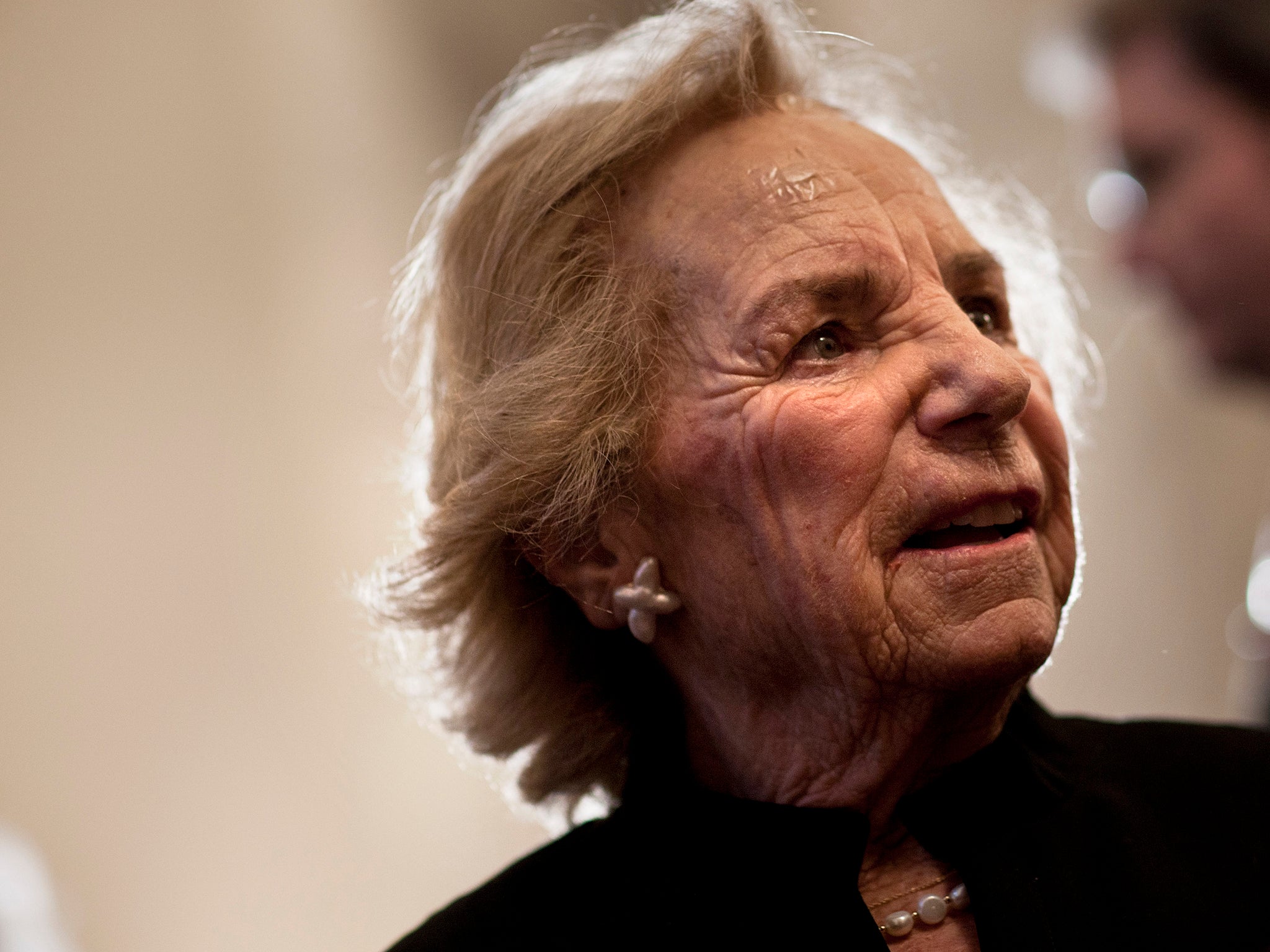
Ethel Kennedy, the widow of former senator Robert F Kennedy and steely-eyed matriarch of America’s elite political dynasty who leaves behind her own strong legacy of human rights work, has died at the age of 96.
Her death was announced by her grandson Joe Kennedy III in a post on X on Thursday, coming just days after the family announced she had suffered a stroke and was “comfortable” in hospital.
“It is with our hearts full of love that we announce the passing of our amazing grandmother, Ethel Kennedy. She died this morning from complications related to a stroke suffered last week. Along with a lifetime’s work in social justice and human rights, our mother leaves behind nine children, 34 grandchildren, and 24 great-grandchildren, along with numerous nieces and nephews, all of whom love her dearly,” said the former Massachusetts Congressman.
“She was a devout Catholic and a daily communicant, and we are comforted in knowing she is reunited with the love of her life, our father, Robert F. Kennedy; her children David and Michael; her daughter-in-law Mary; her grandchildren Maeve and Saoirse; and her great-grandchildren Gideon and Josie. Please keep her in your hearts and prayers.”
Kennedy’s life was famously marred by tragedy, with the tragic deaths of both her parents in a private plane crash, her husband’s assassination in 1968, and the deaths of two of her children – one to an accidental overdose, the other to a skiing accident.
But despite her personal heartbreak, Kennedy was well-known for her dedication to advancing the human rights of others.
She founded the Robert F Kennedy Human Rights organization in her late husband’s name, advocating for better living and working conditions around the world, in part by drawing attention to the climate crisis. For decades, she dedicated her time to the high-profile public service that came with both the privileges and burdens of the famous Kennedy name.
Born Ethel Skakel on April 11 1928 in Chicago, Illinois, she was the sixth of seven children to Anne and George Skakel.
The children were raised Catholic in what was, at first, a working-class family.
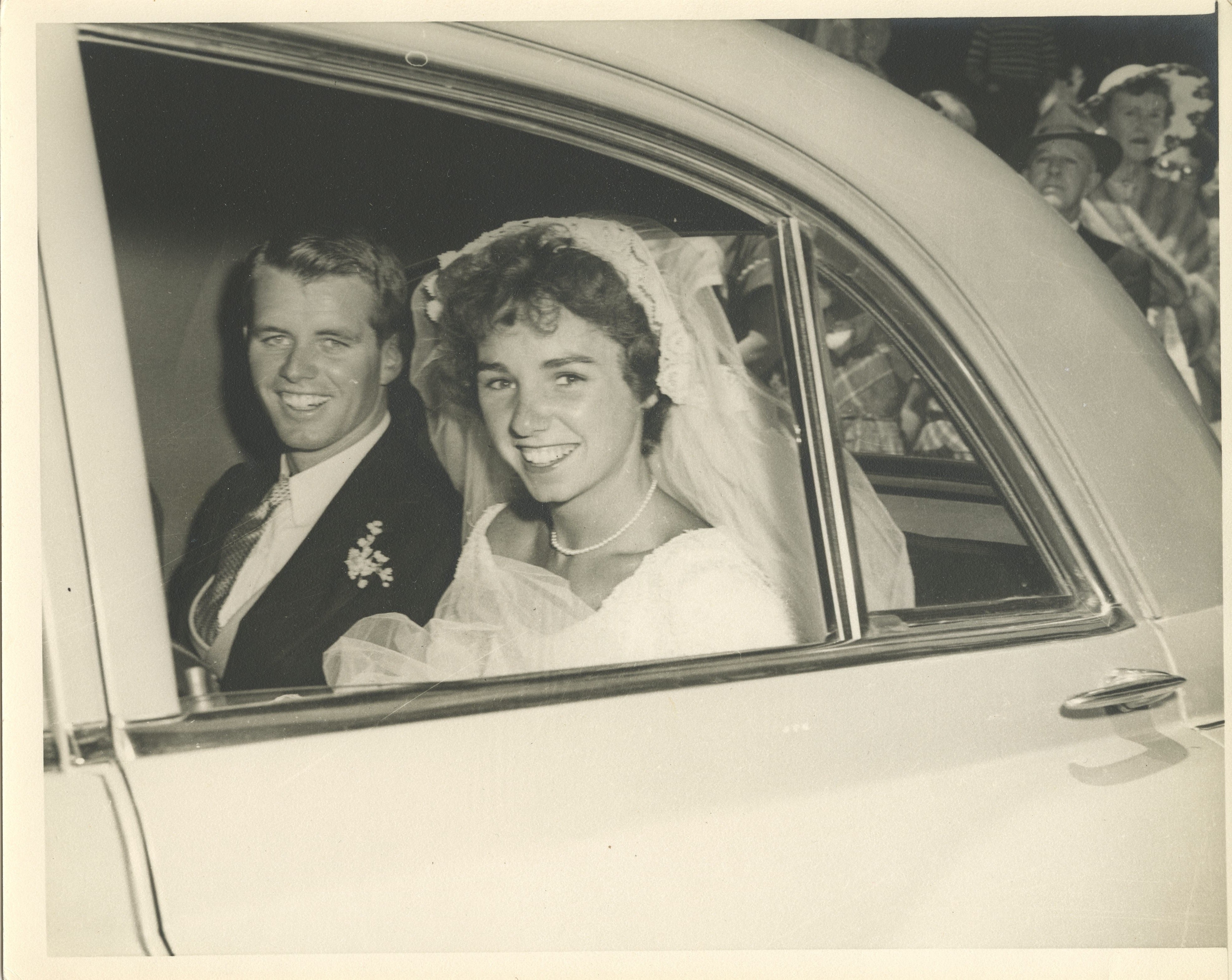
Their fortunes quickly transformed when George cofounded the coke and coal business Great Lakes Cola & Coke Company with some of his coworkers on the railroad. The business took off and eventually became the hugely successful Great Lakes Carbon Corporation.
With their newfound wealth, the family upped sticks and moved to the wealthy enclave of Greenwich, Connecticut. Kennedy was just five years old at the time of the move and went on to attend elementary and secondary school there.
It was while attending university at the Manhattanville College of the Sacred Heart that she then met and became friends with Jean Kennedy — the sister of her future husband Robert F Kennedy.
In 1945, Jean introduced a then-17-year-old Kennedy to Robert while on a skiing trip in Quebec, Canada.
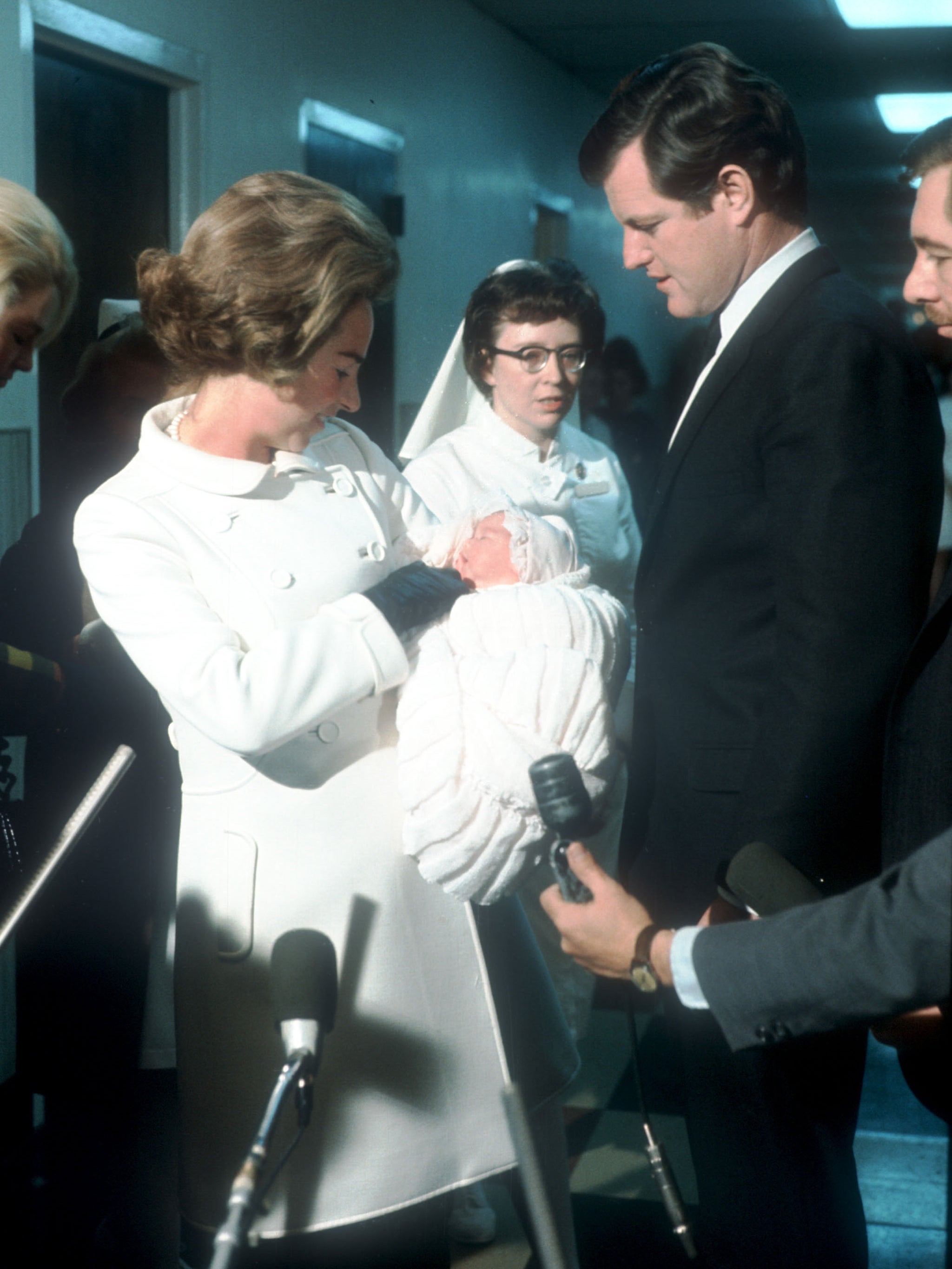
Five years later, the two married and began a life together.
By all accounts, Kennedy is said to have embraced her new identity as part of the prominent political dynasty and all the trappings of wealth, glamor and press speculation, as well as the hard work, expectations and intense pressure, that came with it.
In July 1951, around one year after the couple wed, Kennedy gave birth to their first child Kathleen.
Over the next 17 years, Kennedy would give birth to 10 other children: Joseph in 1952, Robert F Kennedy Jr in 1954, David in 1955, Mary “Courtney” in 1956, Michael in 1958, Mary “Kerry” in 1959, Christopher in 1963, Matthew “Max” in 1965, Douglas in 1967 and Rory in 1968.
In the early days of their marriage, Kennedy took on a largely traditional role, bringing up the children while supporting her husband as he pursued his political career.
But privately, Kennedy was known for her feisty personality and tough parenting style.
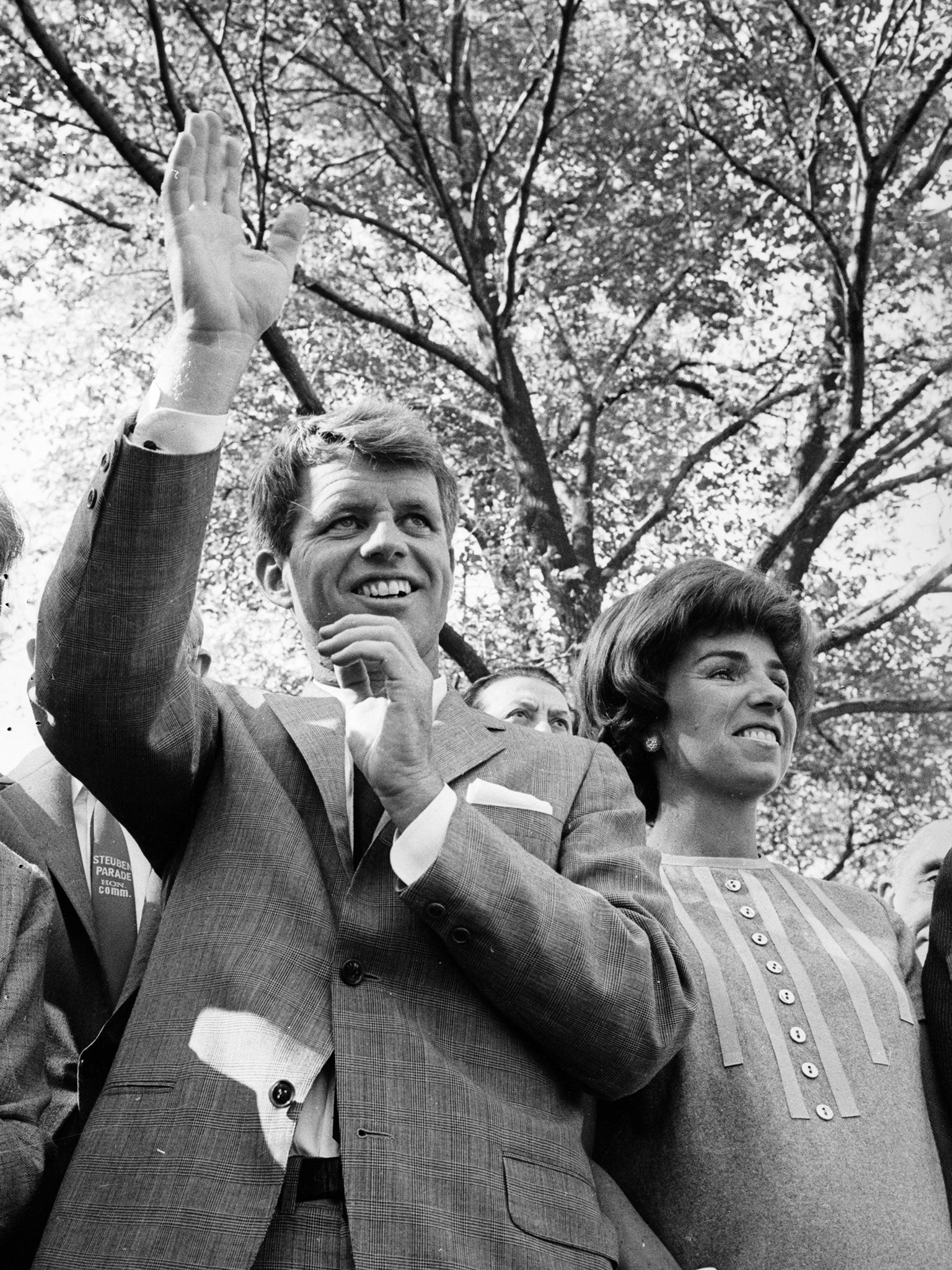
In the 2012 documentary Ethel, directed by daughter Rory, she was remembered for encouraging competitiveness, independence and political activism in her children from a young age.
And Kennedy also became more politically active over the years, campaigning for both her husband and brother-in-law in their pursuits in Washington.
When her husband became the chief counsel for the Senate Permanent Subcommittee on Investigations in 1957, Kennedy would often visit Capitol Hill daily to attend hearings — with her many children in tow, according to a 1987 Architectural Digest article.
Then, when John F Kennedy was elected president in 1960, he appointed his younger brother Robert as his attorney general. As a result, Kennedy and her husband bought a 13-bed mansion, Hickory Hill, in Virginia, from JFK and Jackie and their ever-expanding brood moved in.
There, Kennedy and her husband became known for hosting spirited social events.
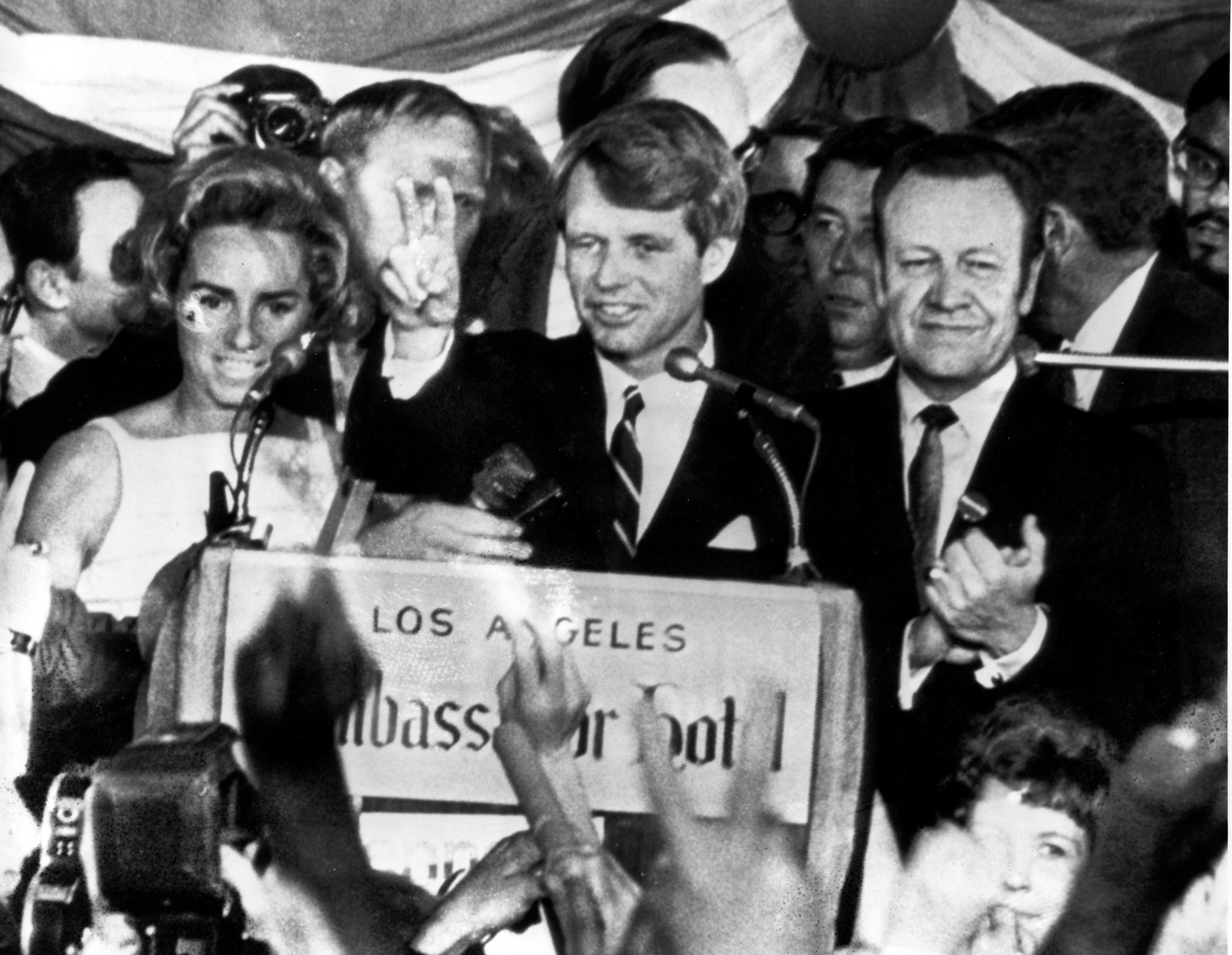
The house would often be filled with campaign managers and speech writers who would later recall the Sound of Music-esque nightly ritual of the many children coming to bid their parents goodnight while they entertained their guests.
In 1963, the family was rocked by the assassination of JFK.
After his brother’s death, Robert pursued his own political ambitions – first with a successful run for the US senate, then with his own bid for president.
Kennedy supported him by joining him on the campaign trail — something she thoroughly enjoyed.
But, on June 5 1968, mere minutes after Robert won the California Democratic primary and celebrated his victory in the ballroom of the Ambassador Hotel in Los Angeles, he was shot. He died from his injuries in hospital the next day.
Six months later, Kennedy gave birth to their youngest child Rory – as a widow and single mother of 11.
Kennedy declared she would never remarry due to her Catholic faith.

Instead, she dedicated the remainder of her life to honoring her husband’s memory and furthering the Kennedy clan.
Just months after Robert’s death, she established the Robert F Kennedy Center for Justice & Human Rights (now known as Robert F Kennedy Human Rights).
The nonprofit set out to create a team of leaders that would advocate to expose injustices, heal pain and suffering and work to enact positive change in governments and corporations around the world.
At its opening, Kennedy said: “[RFK] wanted to encourage the young people and to help the disadvantaged and discriminated against both here and abroad, and he wanted to promote peace in the world.”
For the next 50 years, Kennedy dedicated her life to doing exactly that.

She marched with Cesar Chavez, crossed the Edmund Pettus Bridge with John Lewis, sat with Native Americans at Alcatraz, demonstrated outside South African and Chinese embassies, pulled tires out of the Anacostia River and more. She also co-chaired the Coalition of Gun Control.
Even at the age of 90, Kennedy joined a hunger strike in protest of the Trump administration’s policy to separate migrant families at the US-Mexico border.
Kennedy’s desire to promote peace and human rights across the globe was often seen to be, at least in part, her way of responding to the many tragedies she faces in life.
Early in her marriage to RFK in 1955, Kennedy’s parents died together in a private plane crash.
Her husband and brother-in-law were both assassinated.

Her son, David, died of an overdose while her son, Michael, was killed in a skiing accident.
Two of her granddaughters and her great-grandson also tragically died young.
But what endured throughout Kennedy’s life was the tough-as-nails personality she was well-known for.
While presenting her with the Presidential Medal of Freedom – the highest civilian honor – in 2014 for her dedication to social justice, then-President Barack Obama said it best:
“As her family will tell you, and they basically occupy this half of the room, you don’t mess with Ethel.”
Join our commenting forum
Join thought-provoking conversations, follow other Independent readers and see their replies
Comments
Bookmark popover
Removed from bookmarks